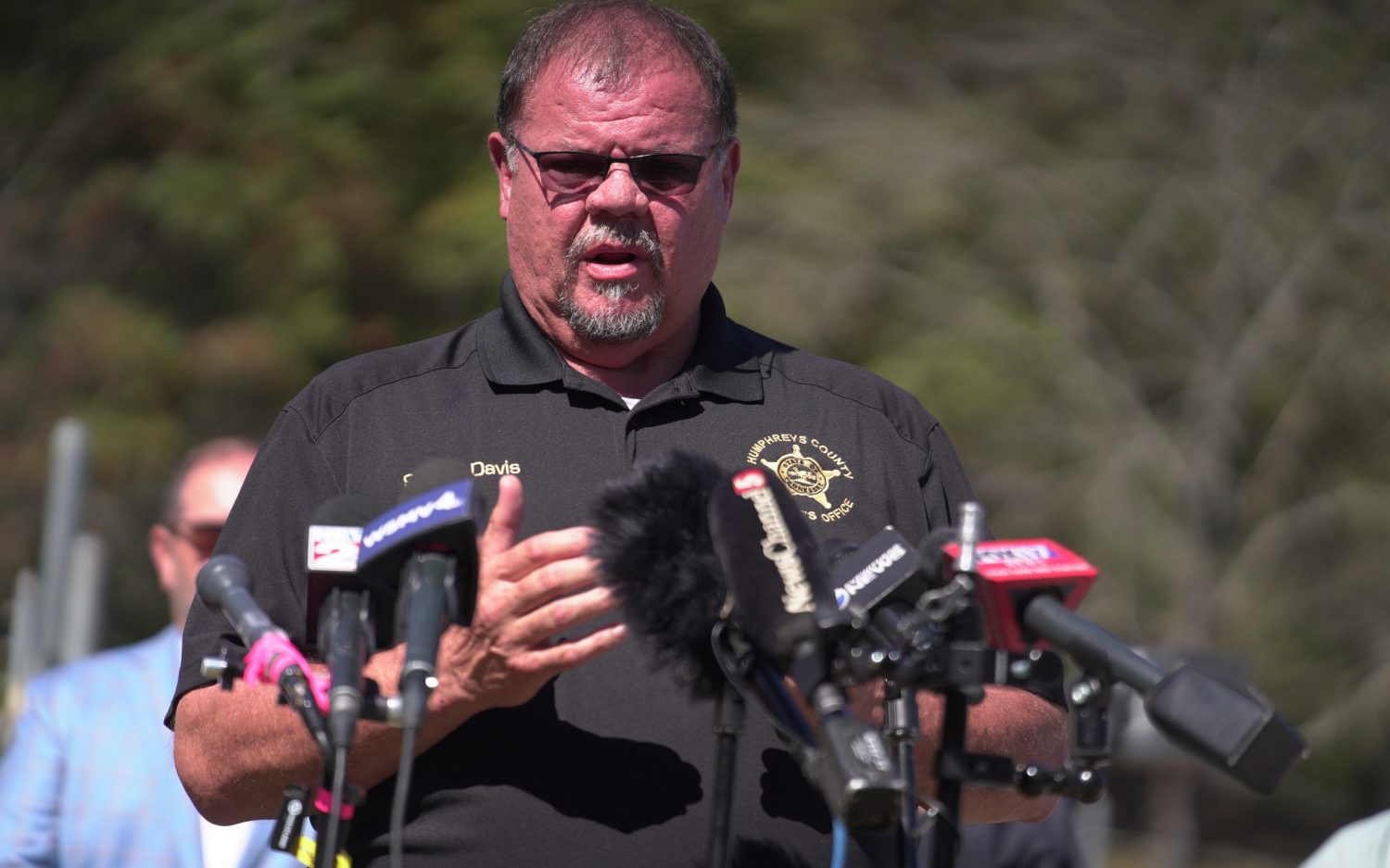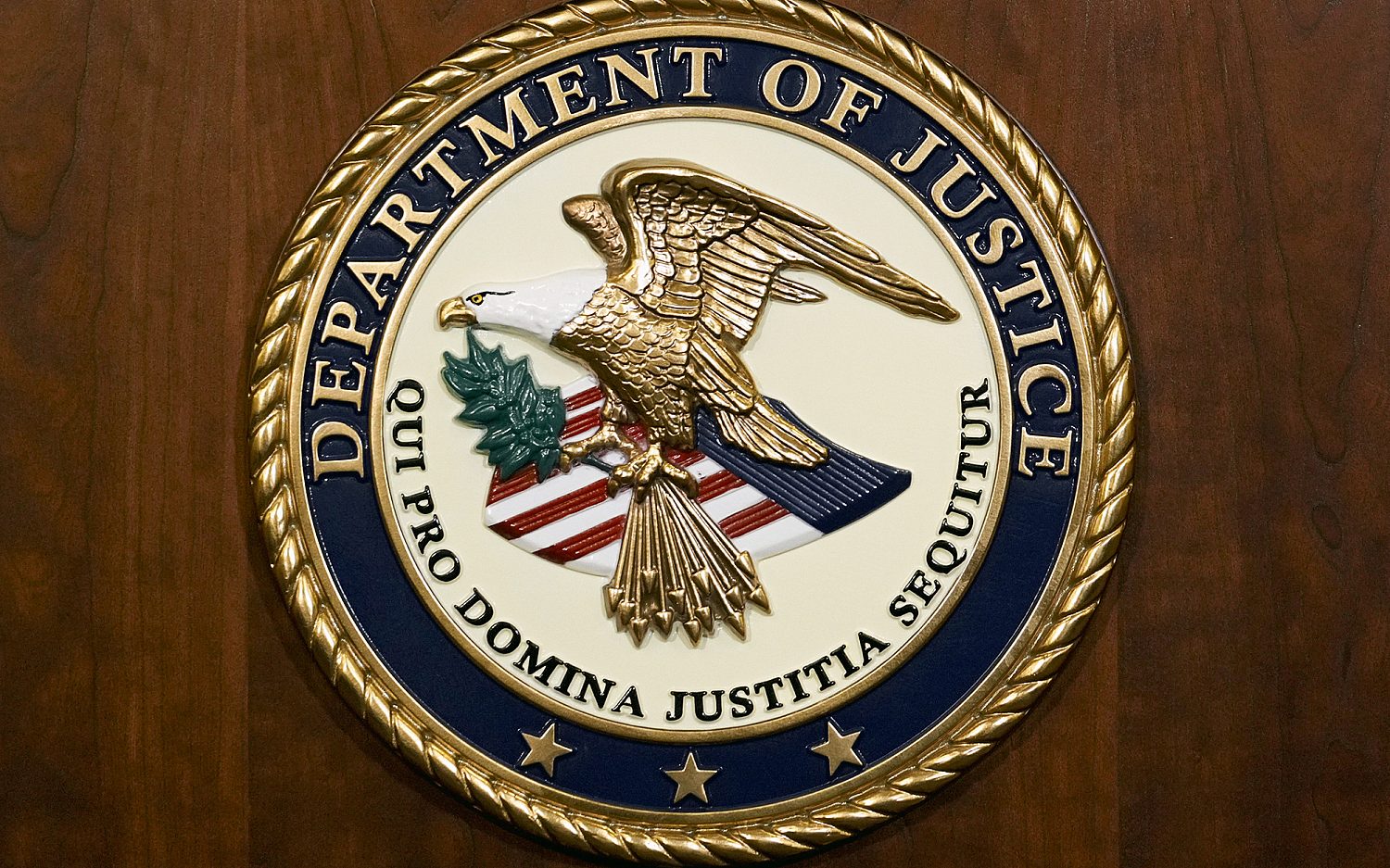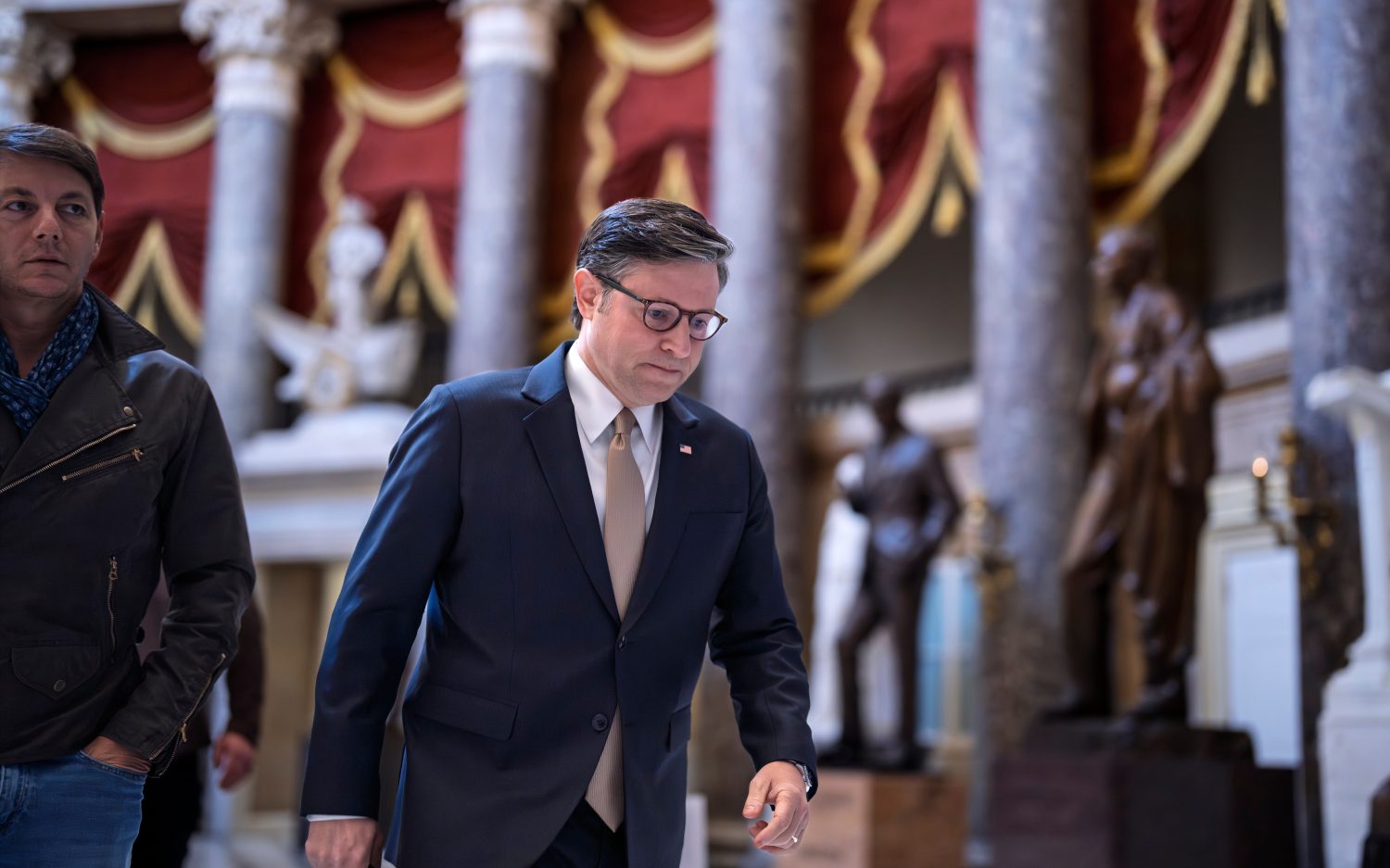Day one
Religious rally creates a circus outside while first arguments over the healthcare law go on inside the court
WASHINGTON-On Monday morning, George Washington University student Chris Crawford sat on the sidewalk outside the U.S. Supreme Court after waiting up all night for a chance to go inside to hear oral arguments over the national healthcare law passed in 2010.
"I came to witness history," he said, pulling out his rations for the day: a loaf of bread and some apples. He's not drinking much water because he doesn't want to have to leave his spot in line to go to a restroom. "This is one of the biggest cases of my lifetime."
The court has scheduled three days of arguments over the healthcare law, lasting about two hours per day. Crawford had a chance to go inside the court Monday, but because Monday's arguments were supposed to be on the boring side, he decided to wait through another (potentially freezing) night outside for a chance to sit in on Tuesday, when arguments will focus on the constitutionality of the mandate to buy health insurance.
Monday was an arcane-but vital-discussion (download a PDF of the court's transcript) of whether anyone could sue over the law because no one has paid penalties for noncompliance yet. That concern springs from the Anti-Injunction Act, which prohibits lawsuits from hindering the collection of taxes until individuals have actually paid the taxes. So the question was whether the penalties assessed under the healthcare law count as taxes.
Solicitor General Donald Verrilli Jr., who argued on behalf of the administration, said the case presented "issues of great moment" that the court should consider now, not after the penalties take effect, and the justices seemed inclined to agree that the case should move forward. Some lawyers predicted before Monday's arguments that the justices might dodge a political bullet by deferring a decision on the law until after this year's presidential election.
The Obama administration has taken different positions on this specific issue. In lower courts, its lawyers argued essentially that the penalties under the healthcare law did count as taxes. That would prohibit lawsuits until 2015, when people would begin paying penalties under the law. But the administration dropped that argument as the cases progressed, deciding that it wanted the courts to go ahead and decide the constitutionality of the law. Since none of the parties in the case wanted the case delayed until 2015, the court called in an outside lawyer to argue that the parties didn't have standing to sue.
Outside the Supreme Court building, a noisy circus of protestors, complete with trombones, trumpets, and cowbells, crammed into a small rectangle of sidewalks, where some unfortunate yellow pansies were trampled. The supporters of the law were well-organized and several hundred strong, some wearing Obama campaign buttons. Several news outlets reported that the White House had met with proponents of the law-including religious leaders-in early March to coordinate support during the Supreme Court arguments.
Critics of the law were sparse outside the court, though Republican presidential candidate Rick Santorum came to the court steps and eviscerated the law right in the middle of the chanting, pro-healthcare law crowd. About half-a-dozen pro-life supporters stood in a line along the front steps of the court, with red tape over their mouths that said "LIFE." The group, Bound4Life, prays outside the Supreme Court every day.
"We're praying for the ending of abortion," said Matt Lockett, the group's executive director, who added that the healthcare law would expand the number of abortions.
A group of religious leaders from mostly mainline denominations-United Methodist, United Church of Christ, and the Presbyterian Church (USA)-rallied on the court steps in support of the healthcare bill. Some Catholics were at the rally, too. "Our sisters know what happens on the ground for those who don't have healthcare," said Sister Regina McKillop, with Sisters of Mercy, a Catholic women's relief organization. "I think we have a lot more credibility than the bishops because we've been on the ground."
"Who are you?" a woman asked one of the religious protestors.
"We support the bill. Isn't that great?" responded a protestor holding a "People of faith for healthcare" sign.
"No!" the woman returned. "We can't afford it!"
"Can I talk to you later?" the protestor said. "We're people of faith and this is a prayer vigil."
"I'm a person of faith," the woman huffed. "And we can't afford this."
"Can you respect the people who are praying?" the protestor replied, and then turned her back on the woman. The faith rally protestors began singing "This Little Light of Mine," and the woman stormed away. "I'm so mad," she said.
The faith rally turned ugly when Santorum showed up, along with his daughter Elizabeth and son Daniel. One man yelled, "How can you not give healthcare to a child, Santorum? That's not Christian!" Another yelled, "Would Jesus take away your healthcare?" The crowd chanted, "Healthcare is a human right!" drowning out Santorum's comments, in which he criticized in the same breath the new healthcare law and the Massachusetts healthcare law under then-Gov. Mitt Romney.
What happened outside the court was all theater-what mattered was inside. The justices indicated that they were willing to move forward and decide the merits of the law, but several of the justices wondered why the government had gone back and forth on its position on whether the penalty was a tax or not.
"Today you are arguing that the penalty is not a tax," Justice Samuel Alito said to Solicitor General Verrilli. "Tomorrow you are going to be back and you will be arguing that the penalty is a tax."
Justice Ruth Bader Ginsburg added, "It seems to me that this is arming the government by saying [the Anti-Injunction Act is] waivable at the government's option."
Justice Sonia Sotomayor asked whether people who don't buy health insurance and pay a penalty are in violation of the law-meaning for example that those on probation who pay the penalty would have their release revoked.
"That is not a correct reading of the statute," Verrilli responded. "The only consequence that ensues is the tax penalty."
Then Justice Elena Kagan followed up, asking whether someone who had paid the penalty would have to respond "yes" to a question about whether he or she had violated federal law. Verrilli said no, but "if they don't pay the tax, they violated a federal law. … If they pay the tax, then they are in compliance with the law."
Justice Stephen Breyer stopped Verrilli, asking, "Why do you keep saying tax?"
"If they pay the tax penalty, they're in compliance with the law," Verrilli corrected himself.
"Thank you," Breyer said. "The penalty."
"Right," said Verrilli.
Chief Justice John Roberts seemed ready to move forward and concluded after 90 minutes, "We will continue argument in this case tomorrow."
Read Emily Belz's Web Extra reports on the second and third day of arguments.
Listen to a report on the Supreme Court hearings on WORLD's radio news magazine The World and Everything in It.
An actual newsletter worth subscribing to instead of just a collection of links. —Adam
Sign up to receive The Sift email newsletter each weekday morning for the latest headlines from WORLD’s breaking news team.





Please wait while we load the latest comments...
Comments
Please register, subscribe, or log in to comment on this article.